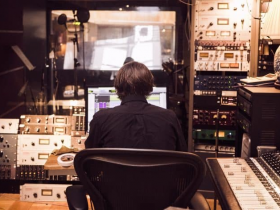The hardest part of any guitar learning course is to master coordination between the mind and hands. It’s like you are chasing the chords in order to play a song, and when you lose a chord, the whole piece stops. But that’s the whole point in playing the guitar, to produce music by hitting the chords, and this requires mind-body coordination. This is because you not only have to control the chords, but at the same time strum the strings simultaneously.
A lot of people often get discouraged from learning to play the guitar when they are not able to sync their mind and body in playing the chords. Hence, if you really are eager to play this instrument, you may want to check out these tips to boost mind-hand coordination:
- Practice using songs with a few chords.
If you may notice, guitar lessons begin with practice songs that have only two to three chords. This is because coaches train their students to become used to switching from chord to another in a familiar succession, and the best way to start is with a few chords. Memorizing the chords is already a difficult chore because for each chord you have to place your fingers on the fret accordingly and then do the strumming, and shifting from one chord to another will require more conscious effort to pull through.
So yes, start with songs that consist of two to three chords. Not only are they easy to memorize, they also allow more room for you to switch cords smoothly in a faster manner.
- Visualize.
Who says you need to have a guitar on your hands when practicing how to play? Guess what: you can still work on your mind-hand coordination skills even without an actual guitar. All you have to do is visualize the way you hold your guitar on one hand, and use your other arm to position the fingers on the frets. This works effectively especially when you have memorized the chords in your mind, and how they are positioned on the guitar frets, and you can do these anywhere, anytime, at your own pace. Even guitar virtuosos do this too!
- Try to learn one new lesson on your own every day.
Learning to play the guitar requires daily practice, not just when you’re in class. So yes, you may want to practice one chord per day until your hands have mastered it, or a new riff, lick, or scale. Or try a new song!
The thing about playing the guitar is that you get in touch with your subconscious; in time you will find yourself playing the chords naturally, and this is because your mind and body have already adjusted to it.
- Record yourself.
Recording your practice pieces is a great way to supplement your guitar lessons. Through recording, you are able to pinpoint your manner of playing, and whether you were able to hit the lessons right. You can also submit your recording to your coach, so that he or she would be able to gauge your progress and provide more individualized points for improvement.
























